MercoPress. South Atlantic News Agency
Politics
-
Wednesday, January 30th 2013 - 06:47 UTC
Pacific alliance pledges to liberalize intra-trade for 90% of products by March 31
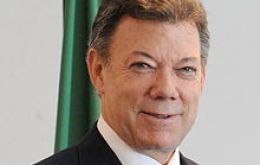
The Alliance of the Pacific, Chile, Peru, Colombia and Mexico have agreed to liberalize 90% of products traded between the group before the end of March 31, a decision which runs counter to the growing protectionism implemented by some of the region’s largest economies on the Atlantic.
-
Wednesday, January 30th 2013 - 06:44 UTC
IMF informally briefed on Argentina and on Friday will address possible censure

The International Monetary Fund’s board of directors was informally briefed on the economic situation in Argentina, which has refused to undergo an annual assessment since 2006.
-
Wednesday, January 30th 2013 - 06:41 UTC
Argentine organized labour anticipates fierce wage talks despite controversial tax relief
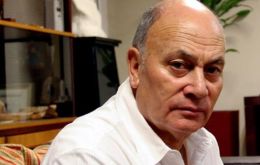
Argentina’s organized labour CGT confederation led by Hugo Moyano came on stage on Tuesday to make clear that Monday’s income tax floor 20% rise announced by President Cristina Fernández “is not enough” and anticipated fierier wage talks with a clear 25% raise demand.
-
Wednesday, January 30th 2013 - 06:36 UTC
Kingmaker of Argentine soccer stepping down in 2015 after 36 years
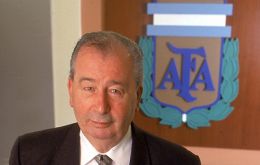
Argentine Football Association (AFA) chief Julio Grondona will step down in 2015 after 36 years in the job, he said on Tuesday. The 81-year-old senior FIFA vice-president, widely criticised for the way in which he has run the AFA, will not seek re-election for the first time since he came to power in 1979.
-
Wednesday, January 30th 2013 - 06:32 UTC
Argentina rejects as ‘improper’ Israel’s objection of an agreement with Iran

The Argentine government rejected Israel’s decision to summon the Argentine ambassador in Tel Aviv to discuss recent agreement between Argentina and Iran, saying it considered it an “improper” move that goes “against the traditional, friendly relationship” between both nations.
-
Wednesday, January 30th 2013 - 06:30 UTC
Spain will oppose by ‘all legal means’ Gibraltar’s full membership of UEFA

The Spanish Government has made clear to Alfred Bosch, the speaker of Esquerra Republicana Catalonia (ERC) in Congress that it will oppose “by all legal means” Gibraltar’s admission as a full member of UEFA. Madrid said UEFA “should not be used for political purposes”.
-
Wednesday, January 30th 2013 - 06:28 UTC
UK gets tough on culture and heritage for those seeking British citizenship

What does it mean to be British? Monarchs, Margaret Thatcher and Monty Python are all important parts of the nation’s heritage, according to a new guide for immigrants introduced yesterday.
-
Wednesday, January 30th 2013 - 06:22 UTC
Sao Paulo delegation in UK with PPP infrastructure projects worth 20bn dollars
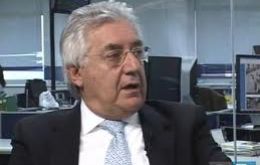
British Trade Minister Lord Green has welcomed a trade delegation from the Government of the state of Sao Paulo who are in the UK to present eight Public Private Partnership (PPP) infrastructure projects, worth 20 billion dollars, to British potential contractors.
-
Wednesday, January 30th 2013 - 06:20 UTC
OAS helps to combat illicit trafficking of firearms in the region
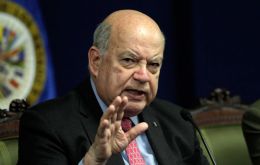
As part of the Organization of American States (OAS) policy to help member countries combat illicit trafficking of firearms the organization this week donated a firearm marking machine to the government of Peru.
-
Wednesday, January 30th 2013 - 01:34 UTC
With almost unanimous support John Kerry confirmed as US Secretary of State

Massachusetts Democrat John Kerry won overwhelming confirmation from his fellow US senators as secretary of state, succeeding Hillary Clinton as the top US diplomat. The vote was 94-3. Dissenters were Republicans Jim Inhofe of Oklahoma and Texans John Cornyn and Ted Cruz. Kerry.
